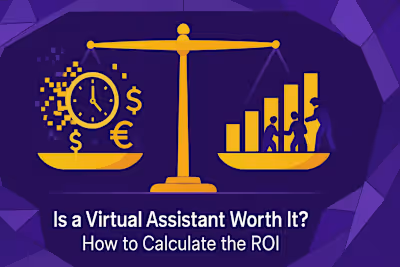Strategic Delegation: 5 Tasks to Never Outsource to a VA (and What to Delegate Instead)

Strategic Delegation: 5 Tasks to Never Outsource to a VA (and What to Delegate Instead)
The Golden Rule: Keep Your 'Core Function' Tasks
1. Core Business Strategy and Vision
2. Final Hiring and Firing Decisions
3. High-Stakes Client Relationships and Negotiations
4. Crisis Management and Company Culture
5. Your Personal Brand and Core Content Creation
What You SHOULD Outsource: A Goldmine of Delegable Tasks
All Things Administrative
Social Media and Marketing Support
Research and Data Management
Financial Administration
Customer and Client Support
How to Delegate Effectively for a Seamless Handover
Create Standard Operating Procedures (SOPs)
Set Clear Expectations and KPIs
Utilize Project Management Tools
Conclusion
References
Strategic Delegation: 5 Tasks to Never Outsource to a VA (and What to Delegate Instead)
The Golden Rule: Keep Your 'Core Function' Tasks
1. Core Business Strategy and Vision
2. Final Hiring and Firing Decisions
3. High-Stakes Client Relationships and Negotiations
4. Crisis Management and Company Culture
5. Your Personal Brand and Core Content Creation
What You SHOULD Outsource: A Goldmine of Delegable Tasks
All Things Administrative
Social Media and Marketing Support
Research and Data Management
Financial Administration
Customer and Client Support
How to Delegate Effectively for a Seamless Handover
Create Standard Operating Procedures (SOPs)
Set Clear Expectations and KPIs
Utilize Project Management Tools
Conclusion
References
Posted Jun 30, 2025
Effective delegation is key to growth. Learn the 5 critical tasks you should never delegate to a virtual assistant and discover what you should be outsourcing instead.









